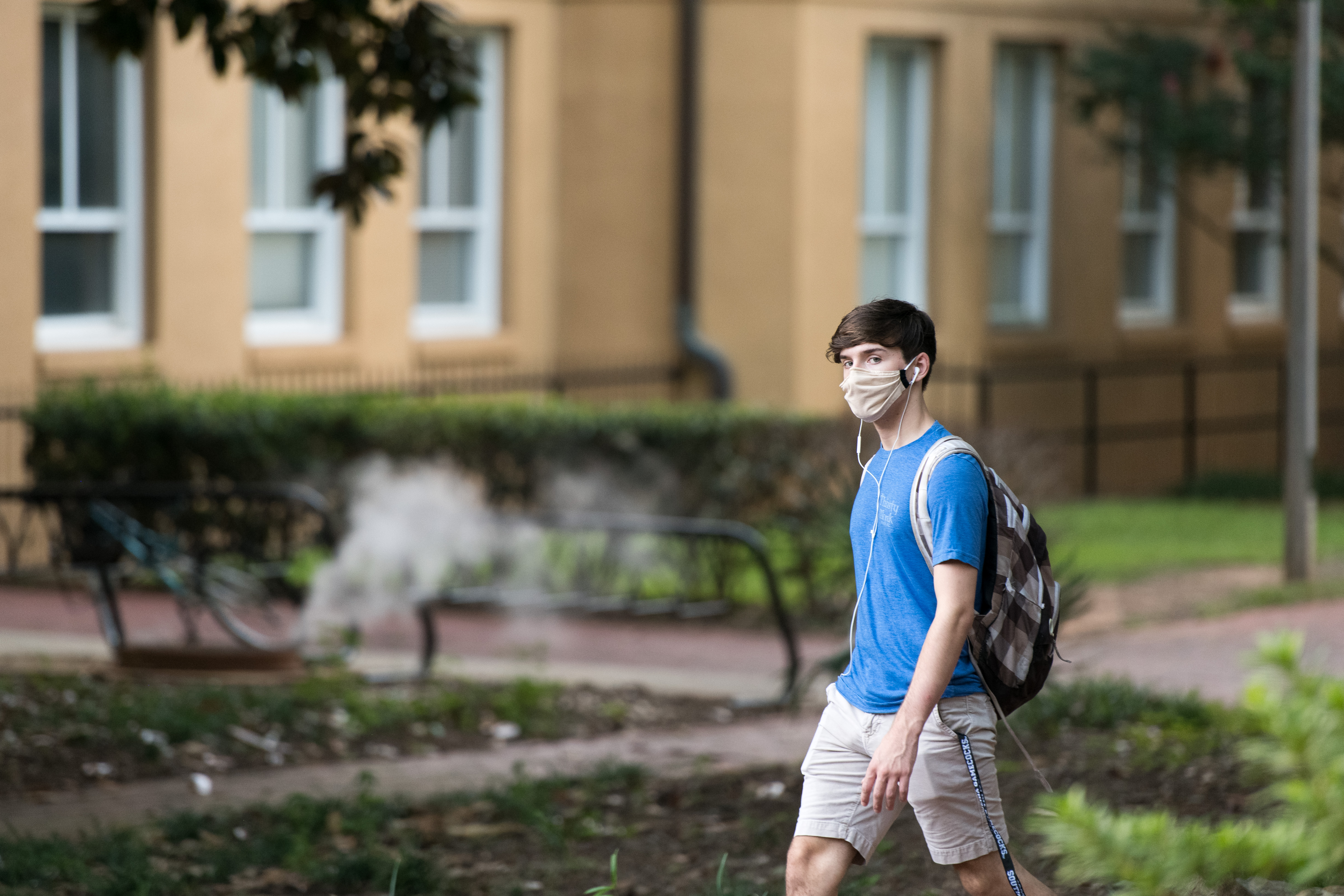Northeastern University kicked 11 students out for violating COVID rules. It's keeping their tuition.


A free daily email with the biggest news stories of the day – and the best features from TheWeek.com
You are now subscribed
Your newsletter sign-up was successful
Hundreds of thousands of students from across the world have descended on America's university campuses for the start of the academic year, and college towns have become the "new front in America's pandemic," The New York Times reports. Despite efforts to curtail the coronavirus' spread, cases have spiked in about 100 college towns, according to a Times analysis. While "there has been no uptick in deaths in college communities," the concern is that students — many of whom are asymptomatic — will spread the disease to older, more vulnerable people.
For all the lofty rhetoric about academic duty of care, one big reason colleges vowed to reopen this fall is because they need the money. The University of Iowa, for example, was facing a budget shortfall of $75 million thanks to coronavirus, the Times reports. Now, "Iowa City is a full-blown pandemic hot spot."
Some schools are putting the blame fully and squarely on students, punishing those who flout coronavirus policies with suspension or outright dismissal. For example, Northeastern University dismissed 11 students for gathering in a hotel room and will not be reimbursing their $36,500 tuition — "marking one of the most severe punishments college students have faced for breaking pandemic rules," The Washington Post notes.
The Week
Escape your echo chamber. Get the facts behind the news, plus analysis from multiple perspectives.

Sign up for The Week's Free Newsletters
From our morning news briefing to a weekly Good News Newsletter, get the best of The Week delivered directly to your inbox.
From our morning news briefing to a weekly Good News Newsletter, get the best of The Week delivered directly to your inbox.
Others schools are now moving classes online or opting for a hybrid system. But by this point, students have already paid their fees and likely won't be getting any money back, a move NYU marketing professor Scott Galloway predicted back in August while speaking to former Acting Administrator of the Centers for Medicare and Medicaid Services Andy Slavitt: "You have 40 years where you could depend on the same amount of revenues coming in within a two-week period where parents sent in their deposits, maybe plus four or five percent. And all of a sudden that's threatened ... I think that lends to a lot of rhetoric around how important it is to open, and that we're going to figure out protocols to ensure something resembling a normal experience. I think a lot of this, quite frankly, is Latin for 'parents, please send in your tuition checks.'"
A free daily email with the biggest news stories of the day – and the best features from TheWeek.com
Jessica Hullinger is a writer and former deputy editor of The Week Digital. Originally from the American Midwest, she completed a degree in journalism at Indiana University Bloomington before relocating to New York City, where she pursued a career in media. After joining The Week as an intern in 2010, she served as the title’s audience development manager, senior editor and deputy editor, as well as a regular guest on “The Week Unwrapped” podcast. Her writing has featured in other publications including Popular Science, Fast Company, Fortune, and Self magazine, and she loves covering science and climate-related issues.
-
 Local elections 2026: where are they and who is expected to win?
Local elections 2026: where are they and who is expected to win?The Explainer Labour is braced for heavy losses and U-turn on postponing some council elections hasn’t helped the party’s prospects
-
 6 of the world’s most accessible destinations
6 of the world’s most accessible destinationsThe Week Recommends Experience all of Berlin, Singapore and Sydney
-
 How the FCC’s ‘equal time’ rule works
How the FCC’s ‘equal time’ rule worksIn the Spotlight The law is at the heart of the Colbert-CBS conflict
-
 TikTok secures deal to remain in US
TikTok secures deal to remain in USSpeed Read ByteDance will form a US version of the popular video-sharing platform
-
 Unemployment rate ticks up amid fall job losses
Unemployment rate ticks up amid fall job lossesSpeed Read Data released by the Commerce Department indicates ‘one of the weakest American labor markets in years’
-
 US mints final penny after 232-year run
US mints final penny after 232-year runSpeed Read Production of the one-cent coin has ended
-
 Warner Bros. explores sale amid Paramount bids
Warner Bros. explores sale amid Paramount bidsSpeed Read The media giant, home to HBO and DC Studios, has received interest from multiple buying parties
-
 Gold tops $4K per ounce, signaling financial unease
Gold tops $4K per ounce, signaling financial uneaseSpeed Read Investors are worried about President Donald Trump’s trade war
-
 Electronic Arts to go private in record $55B deal
Electronic Arts to go private in record $55B dealspeed read The video game giant is behind ‘The Sims’ and ‘Madden NFL’
-
 New York court tosses Trump's $500M fraud fine
New York court tosses Trump's $500M fraud fineSpeed Read A divided appeals court threw out a hefty penalty against President Trump for fraudulently inflating his wealth
-
 Trump said to seek government stake in Intel
Trump said to seek government stake in IntelSpeed Read The president and Intel CEO Lip-Bu Tan reportedly discussed the proposal at a recent meeting
